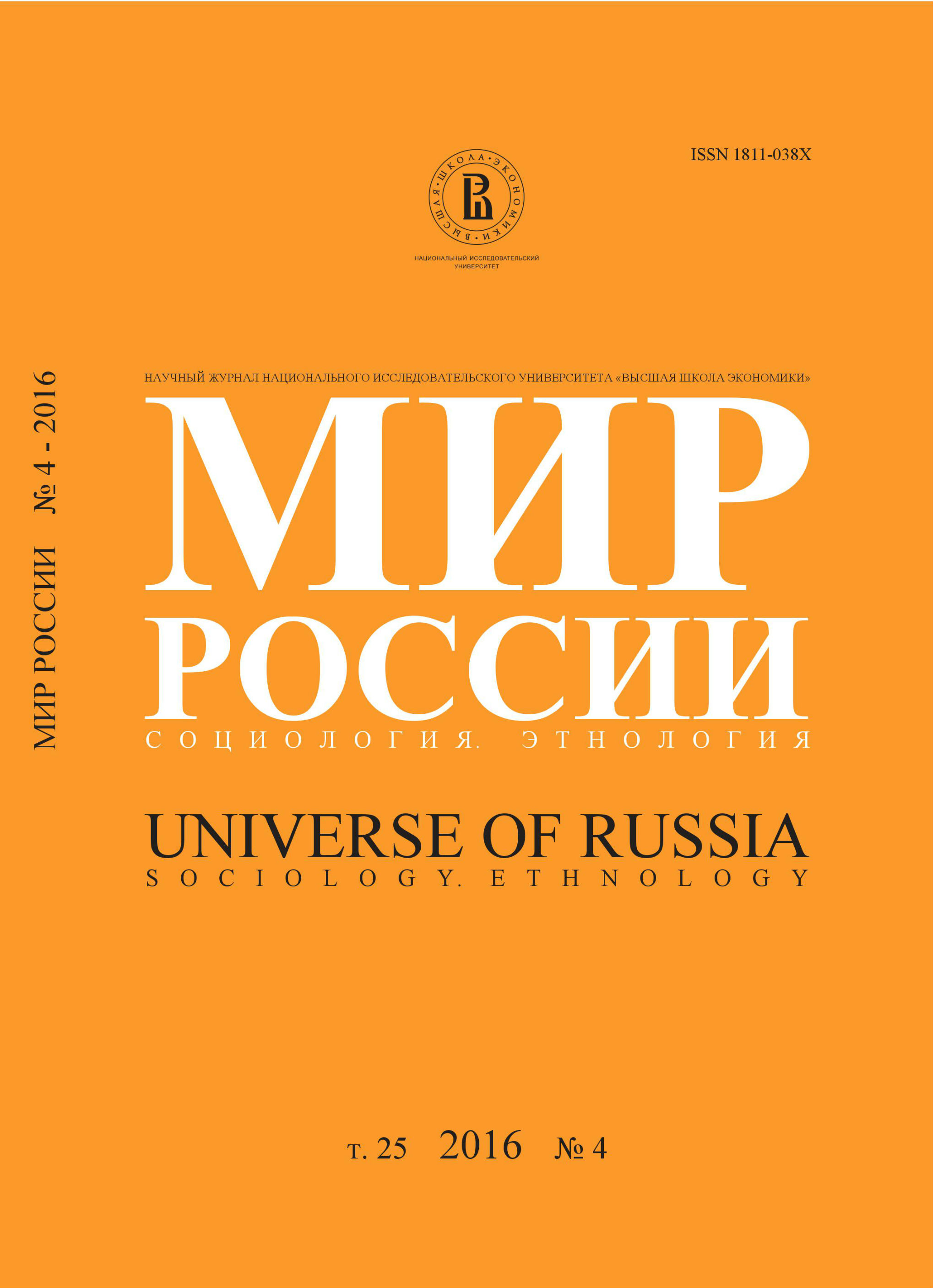New Forms of Social Mobilization? Social Experiments in the Republic of Belarus (Comments on R. Hervouet and A. Kurilo)
Abstract
Мikhail Chernysh — Doctor of Sociology, Deputy Director, Institute of Sociology, Russian Academy of Sciences. Address: bld. 5, 24/35, Krzhizhanovskogo St., Moscow, 117218, Russian Federation. E-mail: che@isras.ru
The French sociologist Ronan Hervouet and his co-author Alexander Kurilo are convinced that in the Republic of Belarus they observed how the patriarchal system of government is capable of maintaining relative economic efficiency. The managers of Belorussian agricultural firms revived the traditions of the pre-Soviet period, albeit in specific Soviet forms. Symbolism became the key element of the strategy of mobilization, but in order to ensure the desired effect it had to be bolstered by elements of coercion. The symbolic construct, which the management called for to encourage self-sacrifice and discipline in agricultural production, represents a mixture of pre-Christian traditions of worshiping nature, Christian values of community service and negation of sin, and Soviet traditions of socialist competition and glorification of honest labour. The current review of Hervouet’s article elaborates on the ways in which the Belorussian experience can be relevant for Russia. Firstly, it charts a new line in the context of continuing social experimentation aimed at integrating the social and economic experience of the Soviet period with the post-Soviet reality. Secondly, it is claimed that the Belorussian experiment is successful only due to the indirect subsidies provided by Russia in the form of extremely cheap energy imports. Thirdly, the experiment is in line with a wider implementation of symbolic mobilization strategies which are also being practiced in Russia. The Belorussian experience is similar to the Russian one with a single exception: the corresponding symbolic strategies are applied in Belarus more consistently than they are applied in the Russian Federation.






